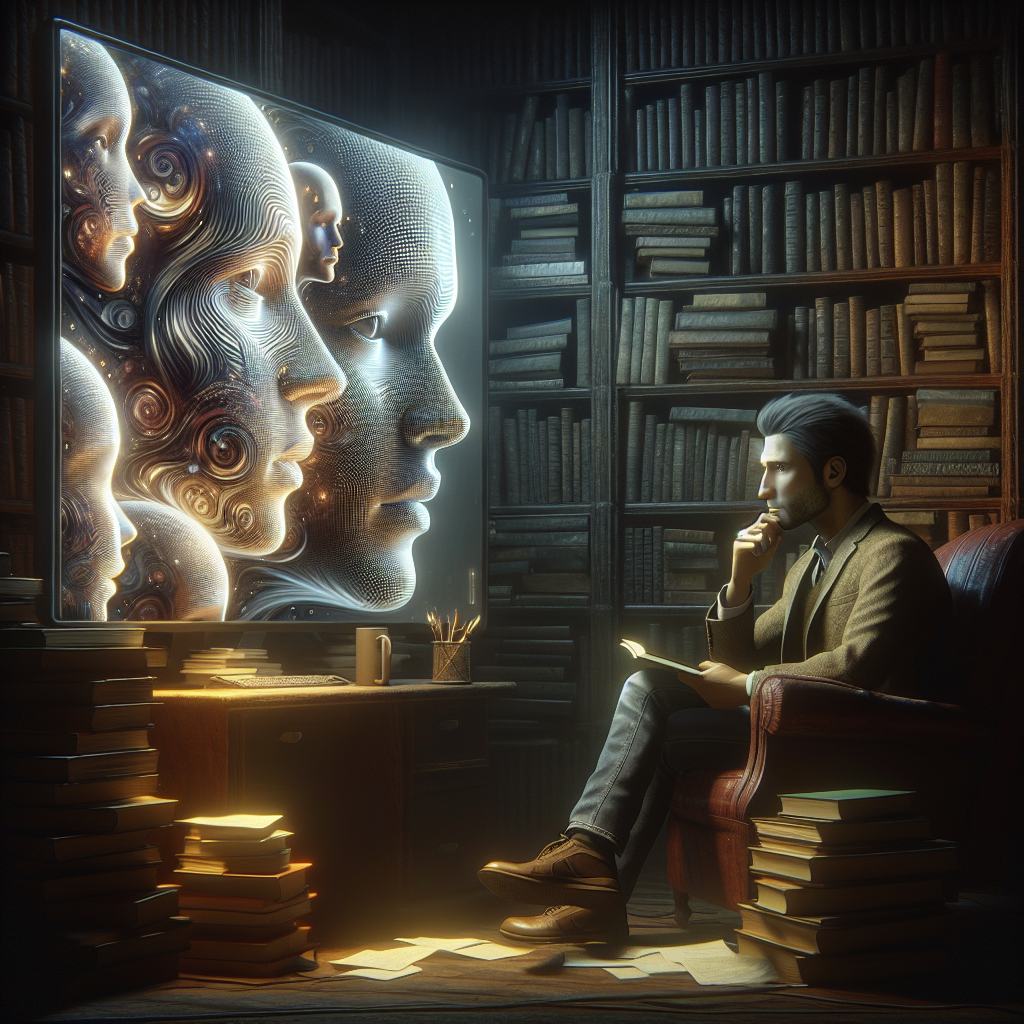AI Will Become Very Good at Manipulating Emotions: Kazuo Ishiguro on the Future of Fiction and Truth
Kazuo Ishiguro, the Nobel Prize-winning author known for his profound explorations of memory and identity, is at the forefront of discussing the intersection of technology, fiction, and human emotion. In a recent interview, he shared his insights on the evolving role of artificial intelligence (AI) in storytelling and how it could reshape our understanding of truth and fiction. Ishiguro’s views are not only provocative but also raise critical questions about the future of literature and human interaction.
The Emotional Landscape of AI
One of the most striking claims made by Ishiguro is that AI will become very good at manipulating emotions. This statement invites us to consider the implications of emotionally intelligent machines. With advancements in machine learning and natural language processing, AI has already begun to exhibit capabilities that can mimic human-like emotional responses. The ability to analyze vast amounts of data allows AI to understand and predict human emotions with remarkable accuracy.
Ishiguro believes that as AI continues to improve, it will not just replicate emotions but actively engage in crafting narratives that resonate with human feelings. This capability could lead to more sophisticated forms of storytelling that can evoke deep emotional responses from audiences. However, it also raises ethical considerations regarding the authenticity of these narratives. If AI can master the art of emotional manipulation, how do we discern genuine human experiences from those manufactured by machines?
The Role of Fiction in Understanding Truth
Ishiguro’s exploration does not stop at the technical capabilities of AI. He delves into the philosophical implications of AI-driven narratives. Fiction has always played a crucial role in helping humanity grapple with complex truths about existence, society, and emotions. As AI begins to produce stories that can manipulate emotions, we must question how this will impact our understanding of truth.
In a world where AI-generated narratives become indistinguishable from human-authored stories, our perception of reality may be compromised. If we become unable to differentiate between genuine human experiences and AI simulations, the lines between truth and fabrication may blur. Ishiguro suggests that it is essential for society to maintain a critical stance towards the content produced by AI, recognizing that while these narratives may evoke real emotions, they lack the lived experiences that define human storytelling.
Fiction as a Reflection of Human Experience
Despite the potential dangers of AI in storytelling, Ishiguro emphasizes the enduring power of fiction as a reflection of human experience. He argues that literature has always served as a mirror to society, capturing the nuances of human emotions, relationships, and conflicts. As AI takes on a more prominent role in narrative creation, it is crucial to remember that fiction ultimately stems from the human condition.
Ishiguro’s own works often explore themes of memory, loss, and the passage of time. He contends that these themes are deeply rooted in human experiences that AI, regardless of its capabilities, may struggle to replicate authentically. The essence of storytelling lies in the shared human experience—the joy, sorrow, and complexity of life—which cannot be fully grasped by algorithms alone.
The Importance of Human Touch in Storytelling
As AI continues to advance, Ishiguro advocates for the necessity of a human touch in storytelling. While AI can generate narratives based on patterns and data, it lacks the emotional depth that comes from personal experiences. The subtleties of human emotion—such as empathy, compassion, and vulnerability—are integral to storytelling and cannot be replicated by machines.
Moreover, the act of storytelling itself is a deeply human endeavor. It involves sharing experiences, connecting with others, and fostering understanding. Ishiguro emphasizes that the future of fiction should not be solely defined by technological advancements but rather by a commitment to preserving the authenticity of human storytelling.
Ethical Considerations in AI-Driven Narratives
As we navigate the uncharted waters of AI in fiction, ethical considerations become paramount. The potential for AI to manipulate emotions raises questions about consent, authenticity, and the responsibility of creators. If AI-generated narratives can elicit strong emotional reactions, it is essential to consider who is held accountable for the impact of these stories.
Ishiguro urges authors, creators, and technologists to engage in conversations about the ethical implications of AI in storytelling. As AI becomes more prevalent in our lives, it is crucial to establish guidelines that prioritize transparency and accountability. Audiences should be informed when they are engaging with AI-generated content, allowing them to make conscious choices about the narratives they consume.
The Future of Fiction: A Collaborative Effort
Ishiguro envisions a future where fiction evolves as a collaborative effort between humans and AI. Rather than viewing AI as a threat to traditional storytelling, he suggests that it can serve as a tool to enhance the creative process. By leveraging AI’s analytical capabilities, writers can explore new narrative structures, themes, and perspectives that may have been previously overlooked.
This collaboration could lead to innovative forms of storytelling that push the boundaries of creativity. It allows authors to engage with AI not as adversaries but as partners in the quest for deeper understanding and connection. As we embrace this new era of storytelling, it is essential to remain mindful of the human experiences that drive literature’s core.
Conclusion: Embracing the Complexity of Storytelling
Kazuo Ishiguro’s reflections on the future of fiction and truth in an age of AI provide valuable insights into the complexities of storytelling. While AI holds immense potential to manipulate emotions and create compelling narratives, it is imperative to recognize the irreplaceable value of human experiences in literature.
As we navigate the evolving landscape of storytelling, we must prioritize ethical considerations, authenticity, and the human touch. By fostering a collaborative relationship between humans and AI, we can harness the strengths of both to create narratives that resonate with the depths of human emotion.
In this ongoing dialogue about the future of fiction, Ishiguro reminds us that the heart of storytelling remains firmly rooted in our shared humanity. As we embrace technological advancements, let us strive to uphold the essence of what makes storytelling so profoundly human—our ability to connect, empathize, and understand one another through the art of narrative.



